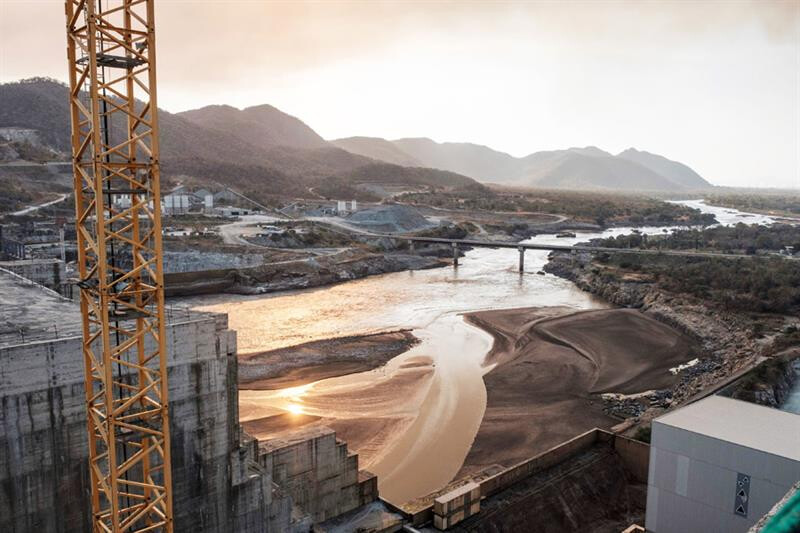
Cairo, Egypt - Despite years of failed negotiations, Ethiopia continues to defy international law and agreements by unilaterally filling the Grand Ethiopian Renaissance Dam (GERD). This has escalated tensions with downstream countries, particularly Egypt, which fears severe water shortages.
Ethiopia insists the dam is crucial for its development, providing much-needed electricity. However, Egypt argues that the filling and operation of the dam without a legally binding agreement poses a significant threat to its water security.
Key Points:
Unilateral Filling: Ethiopia has completed five phases of filling the dam without a consensus, disregarding the 2015 Declaration of Principles and the 1993 Mubarak-Zenawi agreement.
Lack of Transparency: Concerns remain about the dam's safety and its potential impact on downstream countries, as credible studies on its environmental and social effects are lacking.
Egypt's Stance: Egypt seeks a peaceful resolution through international law and diplomatic channels, including the UN Charter. However, it warns of potential action at the UN Security Council if negotiations continue to fail.
Mitigation Efforts: Egypt has implemented various water-saving measures, such as expanding groundwater extraction, wastewater reuse, and desalination plants, to mitigate the impact of the dam.
Operational Uncertainties: The operational status of the dam's turbines remains unclear. Delays in installation and a lack of information about the electricity distribution network raise questions about the dam's actual power generation capacity.
Urgent Need for Agreement: Experts emphasize the urgent need for a legally binding agreement on the filling and operation of the dam, especially as Ethiopia may consider constructing other dams in the future.
The Path Forward:
Resumption of Negotiations: While direct negotiations have stalled, there is a possibility of renewed mediation efforts, potentially involving international actors.
International Pressure: Egypt may seek increased international pressure on Ethiopia to adhere to international law and engage in constructive dialogue.
Regional Cooperation: Finding a mutually beneficial solution requires a collaborative approach that addresses the water needs of all riparian countries.
The ongoing impasse over the GERD highlights the critical need for a comprehensive and sustainable solution that ensures the water security of all countries in the Nile Basin.
[Copyright (c) Global Economic Times. All Rights Reserved.]






























